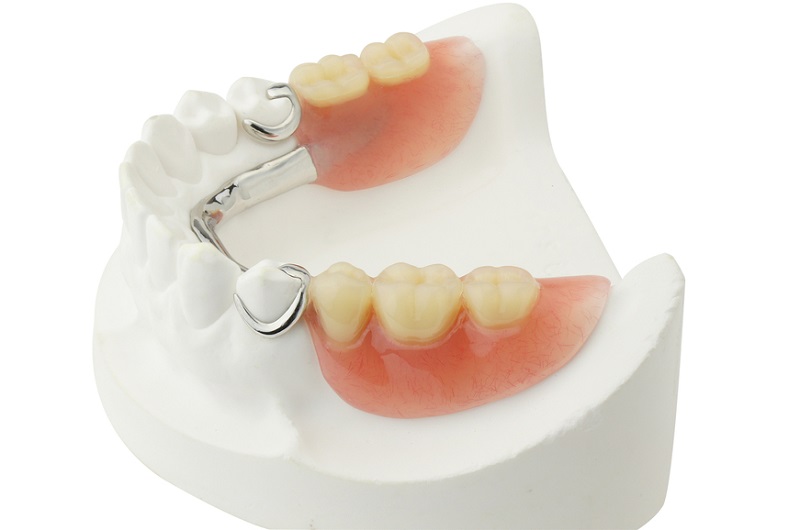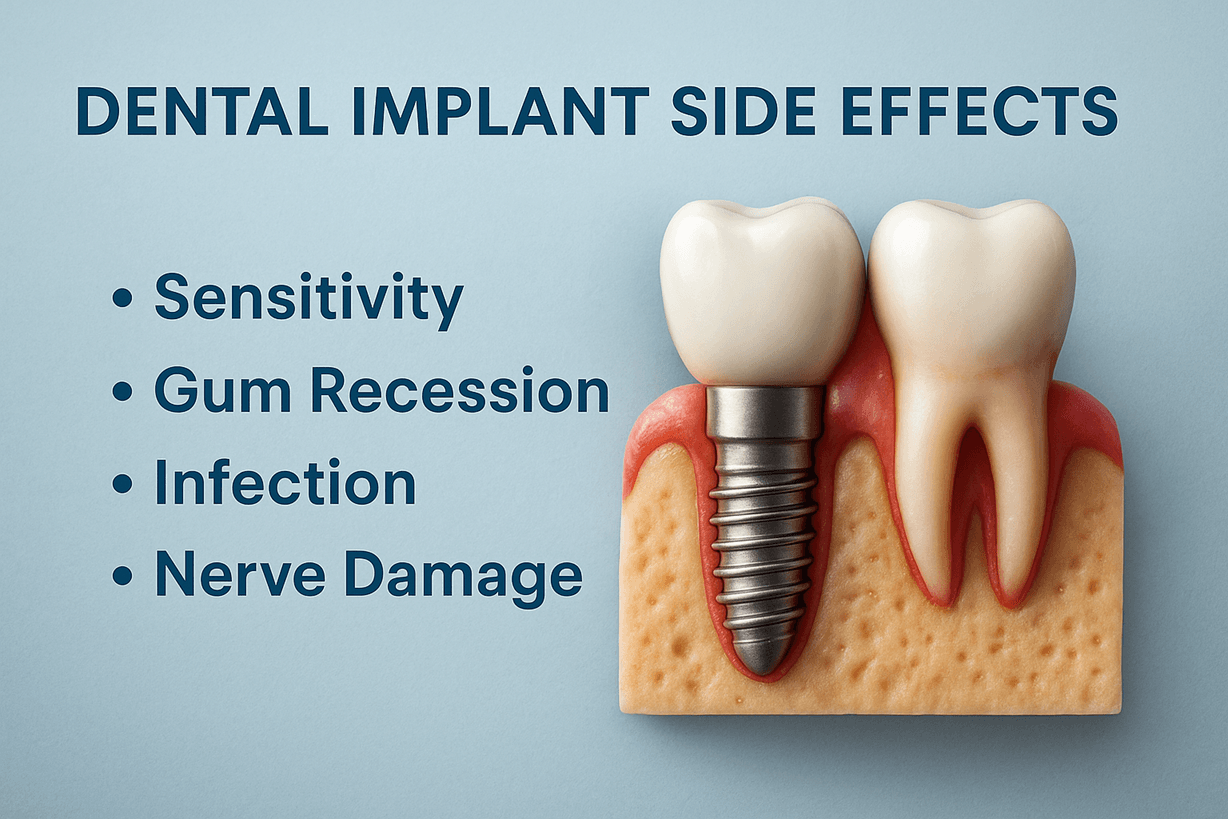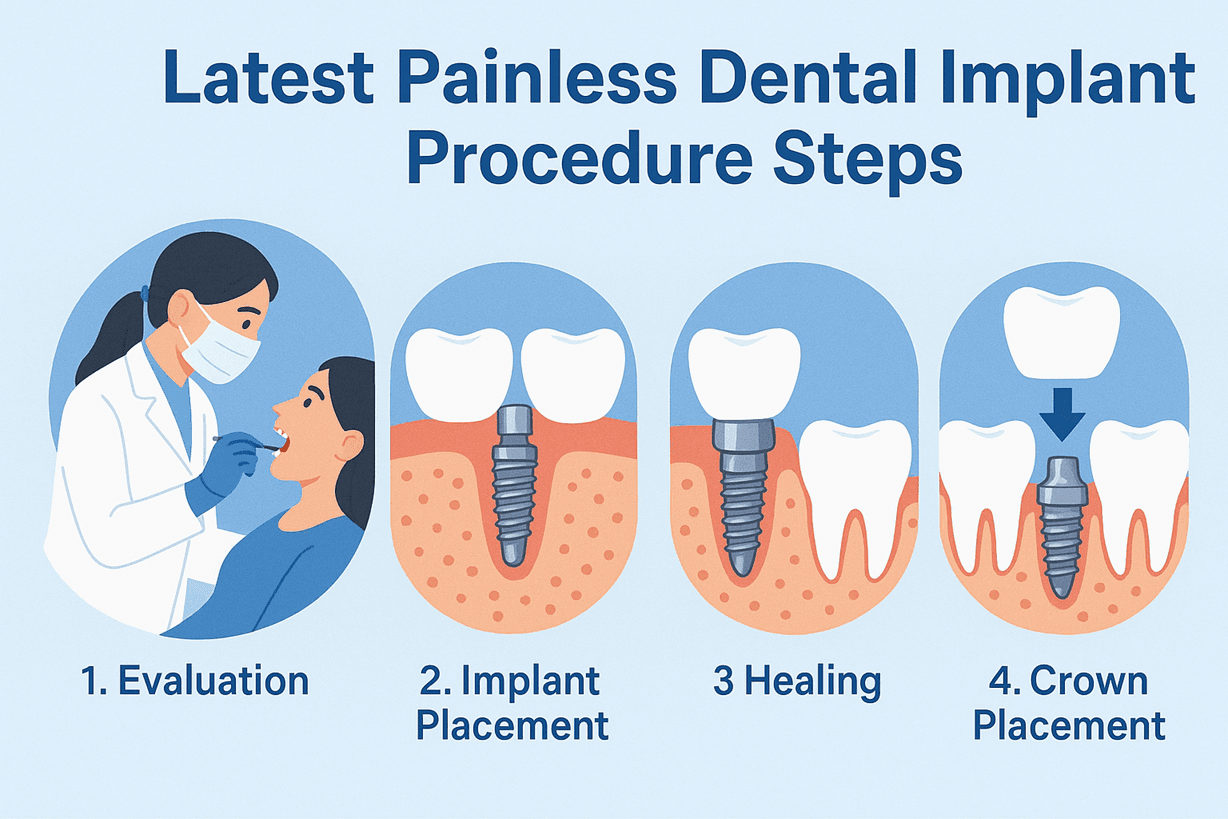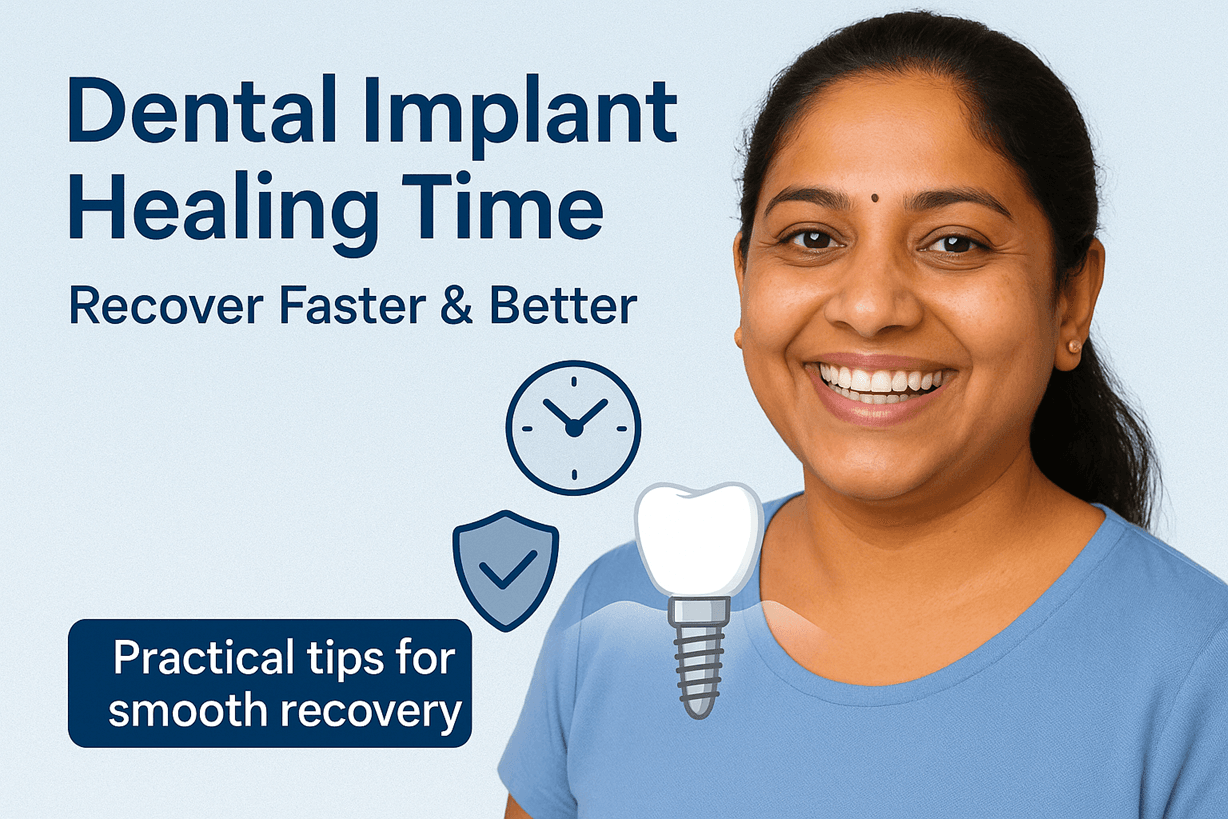Contents
- What is a Cast Partial Denture?
- What are the Key Components of Cast Partial Dentures?
- Why are Cast Partial Dentures Recommended?
- Indications for Cast Partial Dentures
- Advantages of Cast Partial Dentures
- Disadvantages of Cast Partial Dentures
- Cast Partial Dentures Procedure
- What is the Cast Partial Dentures Cost in India?
- Difference Between a Cast Partial Denture and a Removable Partial Denture
- What are the Alternatives to Cast Partial Dentures?
- Conclusion
- FAQs

Smiling is contagious. But what if you're feeling a little less confident about your smile due to missing teeth? That’s where a cast partial denture comes to the rescue.
If you’re new to the world of dental solutions or if you want to know the details about cast partial dentures, this is the blog for you.
What is a Cast Partial Denture?
A cast partial denture is a removable dental appliance designed to replace one or more missing teeth. Unlike full dentures that replace all teeth in an arch, cast partial dentures are ideal when only a few teeth are missing.
These custom-crafted devices feature a metal framework, typically made of cobalt-chromium alloy, that clasps onto your natural teeth, ensuring a secure and comfortable fit.
Cast partial dentures restore proper chewing and speaking functions while preventing nearby teeth from shifting by supporting and stabilizing the remaining teeth.
What are the Key Components of Cast Partial Dentures?
Metal framework: the strong and durable foundation of the denture, ensuring stability and support.
Acrylic or metal clasps: these attach to your natural teeth, holding the denture in place
Artificial teeth: designed to match your natural teeth, both in shape and colour
Base: the portion of the denture that sits directly on your gums, providing comfort and aesthetics.
Why are Cast Partial Dentures Recommended?
- When a patient has lost some of their natural teeth but still has some healthy, functional teeth, cast partial dentures are advised.
- They are appropriate in situations where one or more adjacent teeth are missing as a result of trauma, decay, etc.
- By spreading over the locations where teeth are missing, they can fill in the gaps thereby restoring the occlusion to normal.
- These dentures are useful for posterior areas because they evenly distribute biting pressure over the remaining teeth. It avoids putting too much pressure on particular teeth.
- Cast partial dentures are an option for patients ineligible for implants or fixed dentures due to medical disorders, dental conditions, or insufficient bone support.
- Because cast partial dentures offer high functionality and aesthetics, they are an option for patients with limited budgets.
- Cast partial dentures may or may not be the best choice depending on a patient's dental health, cosmetic preferences, financial status, and treatment goals.
- Before choosing any dental treatment, a dentist must perform a complete and accurate examination.
Indications for Cast Partial Dentures
1. Partial tooth loss
- Gaps or spaces between teeth as a result of tooth loss
- Many nearby missing teeth
- Tooth loss in the posterior region
2. There are healthy, natural teeth present.
- Teeth still present that are able to support and stabilise a denture.
3. An alternative method of treatment
- Candidates ineligible for fixed bridges or dental implants
- Financial limitations, health issues, and insufficient bone support
4. To restore function and aesthetics
- Restores the ability to speak and chew
- Increases alignment of the bite and occlusion
5. Requirements for stability and support
- Evenly distributed bite forces that don't put any pressure on a single tooth.
- Can be secured to the partial denture's remaining teeth.
Advantages of Cast Partial Dentures
Less irritation and pain are experienced due to the fabrication process' usage of lightweight materials.
Since they are easy for patients to remove and clean, maintaining and employing proper oral hygiene is straightforward.
By spreading the chewing and biting forces uniformly, they aid in maintaining the remaining natural teeth.
They address the visual issues by customizing the artificial teeth to match the natural teeth for a more appealing appearance and assured smile.
They don't need complicated surgery or invasive surgery, unlike implants and fixed prostheses.
Disadvantages of Cast Partial Dentures
When a person gets adjusted to new dentures, their speaking clarity and eating patterns may momentarily shift. Patients should receive training and be encouraged to practice in order to recover normal function.
Adjustments or relining may be necessary due to changes in oral anatomy or denture fit over time in order to maintain optimal performance and comfort.
At first, they may cause discomfort like soreness or pain. Dental checkups and routine follow-ups can resolve these problems.
Cast partial dentures might need to be replaced from time to time because of wear, changes in the oral anatomy, or patient preference.
Without tooth roots to stimulate the jawbone, bone loss can occur over time and impact the fit and stability of the cast partial denture.
Cast Partial Dentures Procedure
1. Consultations
It all begins with a visit to your dentist. During this initial consultation, the dentist will assess your oral health and discuss your needs.
2. Impressions
Once you decide to move forward with a cast partial denture, impressions of your mouth are taken. These serve as a blueprint for your custom denture
3. Framework Design
Skilled technicians will create a personalized metal framework that fits snugly onto your natural teeth. This framework is designed for both function and aesthetics.
4. Fitting and Adjustments
You’ll go through a series of fittings to ensure a perfect fit. Your dentist will make any necessary adjustments for comfort and function
5. Artificial Teeth Placement
The artificial teeth are securely attached once the framework fits like a glove. Your dentist will ensure they blend seamlessly with your natural teeth.
6. Final Polish
The denture is then polished to a smooth finish, ready for you to wear with confidence.
The process may take a few weeks to a couple of months, including several fittings and adjustments.
It's essential to be patient to achieve a perfect fit and a natural-looking smile that lasts.
What is the Cast Partial Dentures Cost in India?
For the cost of cast partial dentures in India, you typically anticipate paying anything from INR 5,000 to 20,000 or more.
Difference Between a Cast Partial Denture and a Removable Partial Denture
Cast Partial Denture
These are crafted using a metal framework, often cobalt-chromium alloy, offering durability and stability. The metal frame can be thinner, making them less bulky and more comfortable.
They’re known for their comfortable fit, thanks to the precision of the metal framework and custom design.
Durable and long-lasting, often requiring fewer adjustments or replacements.
Typically, a bit more expensive initially but cost-effective in the long run due to longevity.
Removable Partial Denture
- These are typically made of acrylic and sometimes include metal clasps for attachment. They are often bulkier due to the material used.
- Less durable and may require more frequent repairs or replacements
- More budget-friendly upfront, but ongoing maintenance can add up
What are the Alternatives to Cast Partial Dentures?
Acrylic denture
Dental implant
Dental bridge
Every form of treatment has a unique set of advantages and disadvantages.
Therefore, it is essential to speak with your dentist in order to select the best course to take action for you.
Conclusion
A cast partial denture can be the key to a confident smile. Whether you're considering one for the first time or looking for ways to care for your existing denture, the information provided in this guide should help you make informed decisions about your dental health.
Remember, every smile is unique, and your dentist is your best partner in achieving and maintaining a beautiful, confident smile. Embrace your journey towards a healthier, happier, and more radiant you!
FAQs
What Are Cast Partial Dentures?
Cast partial dentures are removable dental appliances designed to replace missing teeth. They consist of a custom-made metal framework that clasps onto existing natural teeth.
Artificial teeth are attached to the framework, providing a natural-looking and functional solution for individuals with multiple missing teeth.
Is Cast Partial Denture Removable?
Cast partial dentures are removable. The wearer can remove them for sleeping, cleaning, and maintenance.
They are a convenient and useful option for people wishing to restore their smiles without the permanence of fixed dental prostheses because of their detachable nature.


